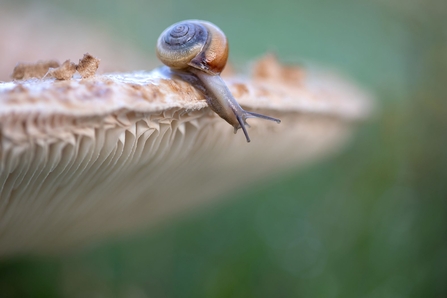Herts and Middlesex Wildlife Trust and Royal Horticultural Society (RHS) are joining forces to challenge the negative perception surrounding slugs and snails in gardens across the UK. The ‘Making Friends with Molluscs’ campaign, which starts today, aims to encourage gardeners to reconsider the role of these often-maligned creatures in their garden ecosystems.
Slugs and snails have long been viewed as a gardener’s greatest foe, but this reputation isn't wholly deserved. There are around 150 species of slugs and snails in the UK, and only a small fraction of these pose problems for gardeners. The majority contribute positively to the garden ecosystem in a number of ways. By learning to appreciate and coexist with these creatures, gardeners can adopt a more environmentally friendly approach to gardening.
While they may not be as valued as earthworms, slugs and snails provide several important services in our green spaces. One of their most significant roles is as nature’s clean-up crew; molluscs feed on rotting plants, fungi, dung and even carrion, helping to recycle nitrogen and other nutrients and minerals back into the soil. They can also clean algae off the glass of greenhouses, leaving behind their trademark trails.
Many of our much-loved garden visitors, including frogs, Song Thrushes, and ground beetles, rely on slugs and snails as a key food source. They also make up part of a Hedgehog’s diet. By supporting these molluscs, gardeners indirectly support a diverse array of wildlife. In addition, territorial slugs, such as leopard slugs, can be helpful in warding off other species of slug and therefore protecting plants from grazing.


